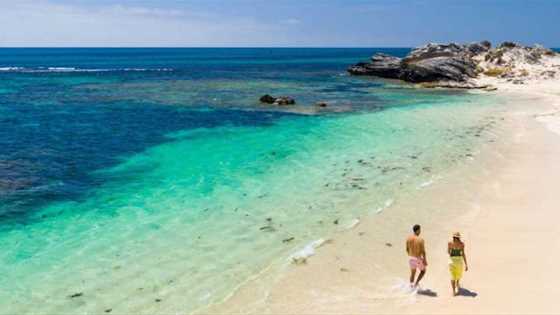There’s more to asylum policy than stopping the boats, says Reconciliation Australia founder, 2014 Senior Australian of the Year and Perth local, Fred Chaney.
The debate on refugee policy within Australia has become a toxic political issue. All sides could be accused of playing politics rather than making policy. However, over the last 12 months, the boats have stopped arriving and some heat has gone out of the asylum debate. The Government can rightly claim credit for the fact that the boats have stopped, probably in combination with policies enacted by the last Labor government.
Regardless of whether you support or oppose it, what the Government has done is create a cooling-off period. The Australian people are strongly supportive of immigration, as long as they feel it occurs through an orderly and controlled framework. Accepting controlled immigration as a starting point, the government has significant flexibility in how it deals with asylum seekers and other immigrants. This presents a window of opportunity.
Now is the time to carve out a viable long-term policy for refugees and asylum seekers.
In October 2014, I launched a new report, Beyond the Boats, a joint production by the Centre for Policy Development, Australia21 and the Kaldor Centre for International Refugee Law at the University of New South Wales. I suggested that the last year had furnished Australia with a chance to create a sustainable and viable asylum and refugee policy for the long term.
At the launch, my friend and former colleague Russell Broadbent MP said it would be a 'long walk, not a short walk' before Australia could approach the issue from a position of genuine bipartisanship, and warned that politicians had become 'deaf' to the community in regards to it. I admire Mr Broadbent but do not share his pessimism. Indeed, we could look to him as an example that the community supports politicians who take a principled stand on this issue. He has crossed the floor three times to vote against his own party on asylum issues. Warned he would lose his seat, at each election his vote has increased.
The Beyond the Boats report offered a nine-point framework for a system of asylum policy that is realistic about regional dynamics (including people smuggling), supports those seeking asylum, and reflects Australian values. It builds on a roundtable held in Canberra in July 2014. A select but diverse group of 35 policymakers and experts participated, including those from the main three political parties, the region (Malaysia and Indonesia), former politicians with direct policymaking experience, legal experts, academics, and refugee advocates.

Fred Chaney
There is far more to asylum policy than 'stopping the boats'. Currently, there are
51.2 million displaced people in the world, the highest number since World War II, with 800,000 people requiring resettlement every year.
Refusing boats means pressure must be relieved elsewhere in the system, ideally in key source countries. This means creative (and expanded) use of pathways for humanitarian resettlement, including quickly processing high-risk cohorts (such as Hazaras from Afghanistan), and in-country processing.
Increasing Australia's humanitarian intake would relieve some pressure, as well as demonstrate to source and transit countries that Australia is serious about working to reduce the burden on other countries. This is why the report advocates an increased humanitarian intake from 13,750 to 25,000.
Working with our regional partners is also vital. Everyone wants a regional framework, but that will not happen without considered and respectful dialogue. One only has to look at the projections to realise forced migration is a growing, not a receding issue, especially in our region. This is inescapable. Yet there is no forum for a comprehensive discussion of forced migration issues.
Given the sensitivity of this policy area, there needs to be a forum where officials and stakeholders can speak freely – in a private capacity – and contemplate the long term. These dialogues have been productive elsewhere, especially in defence and security, but have been absent on this policy. Government backing and the involvement of senior officials from source, transit and destination countries will be a necessary condition. Other stakeholders also need to be present, including the UNHCR.
More can be done to directly improve areas directly under Australia's control – including how we treat people in our care and settle people in the community – such as assisting with language difficulties. Much must be done to improve conditions in Nauru, Manus and for the caseload in Australia, particularly when it comes to work rights and detention. Mandatory detention, apart from initial screening, is unnecessary. Research indicates that it does not provide a deterrent to arriving by boat, and has a negative psychological effect.
Australia has a rich history of migration. We have thrived upon the intake of migrants, whether it is through working, family or humanitarian visas. The debate surrounding refugees needs to be refreshed. New approaches and greater discussion from both political sides are required to create a non-partisan solution.
There is no quick fix to the issue, nor does one person or political party have all the answers. The three organisations behind Beyond the Boats have worked through the issues in a respectful, forward-looking fashion, and have sought to involve regional partners. The recommendations are worthy of broad support.








